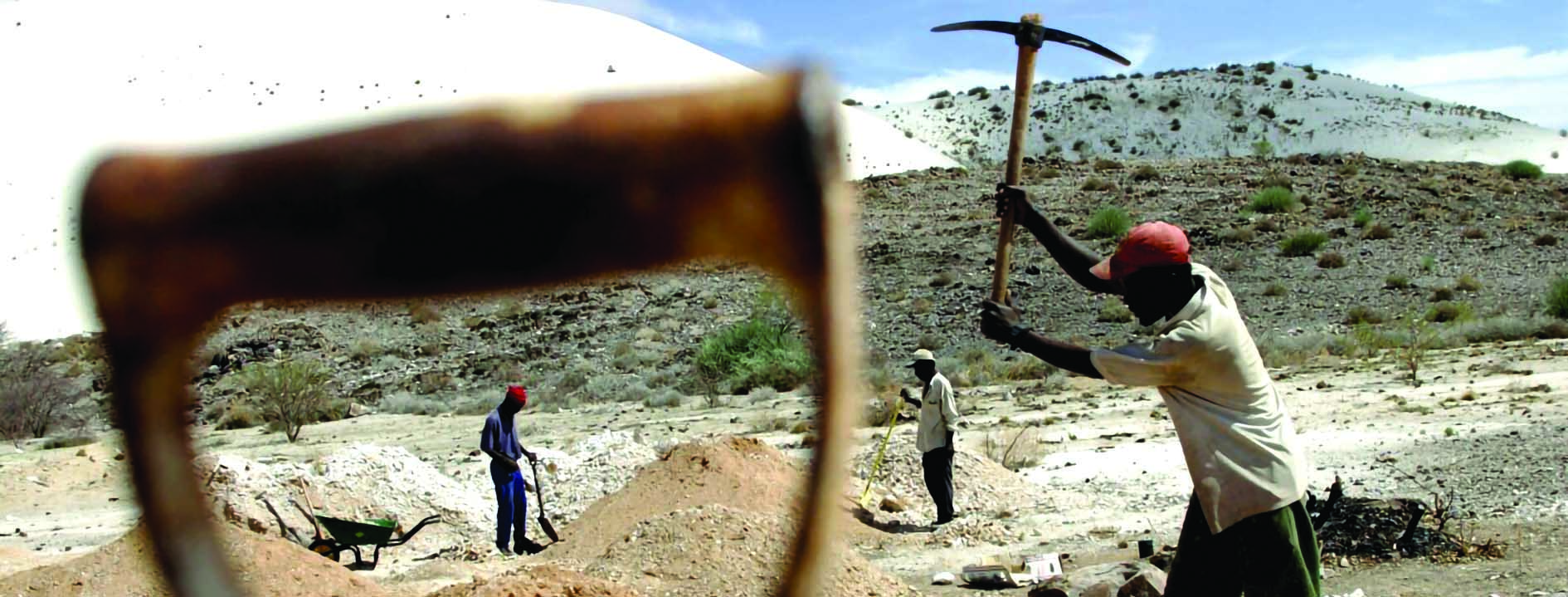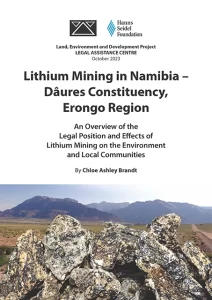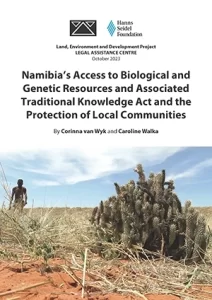
Overview
LEAD deals not only with access to land but also extensively with the protection of the environment and natural resources in order to improve livelihoods. We focus strongly on wildlife as a very important resource, not only for income generation today, but also for the world that we want to leave to the generations to come.
Following is an overview of a few selected areas of LEAD research, outreach and advocacy work:
Extract from NAMLEX on Environment and Water which names and links all relevant laws.
TIN MINING
This paper discusses how the extraction of natural resources has the potential to exploit local host communities, and the issue of notoriously non-compliant “public consultations” and the State’s lack of enforcement of the principles of public consultation.
Firstly, the paper states the current legal position on public participation and consultations; and secondly, it discusses issues around the enforceability of the law, with reference to the Reconnaissance Energy Africa Ltd (“RECON”) case, inter alia.
Sustainable Development
NAMIBIA’S ACCESS TO BIOLOGICAL AND GENETIC RESOURCES
Wildlife Training
- Wildlife Crime as Organized Crime including Poaching statistics,
- Global and local trends,
- role of Organized Crime in poaching and International Wildlife Trade,
- Namibian legislation, fine adjustment, raising community awareness in assisting law enforcement
- followed by a screening of the LAC film Baxu and the Giants. The sessions ended with an
- Introduction into the role of traditional authorities in Natural Resource Management, with a focus on the relevant legislation
- Traditional Authorities Act with the regulations and the “Role of Traditional Authorities in Promoting Sustainable use of Namibia’s Natural Resources“
- Environmental Management Act and the relevant regulations.
- Communal Land Reform Act with the regulations and discussion on Illegal Fencing. See also our publication on the topic.
Wildlife Crime
With the persistent threat of wildlife crime many species face the illegal activities of poachers and traffickers.
The Scope of the Problem:
- High-value species: Rhinos and elephants are prime targets, driven by the insatiable demand for their horns and tusks in some Asian markets. While Namibia has seen success in curbing rhino poaching in recent years, elephant poaching remains a concern.
- Bushmeat trade: Poaching for meat to be sold in local markets also poses a significant threat, affecting various antelope species and even threatening populations of some carnivores.
- Pangolin trafficking: These scaly mammals, prized for their purported medicinal properties in Asia, have become a recent target, with Namibia emerging as a transit point for illegal trafficking.
Factors Fueling the Crime:
- Poverty and lack of opportunities: Some communities living near protected areas may resort to poaching due to limited livelihood options and economic hardship.
- Corruption and weak law enforcement: Gaps in legislation and enforcement can create room for illegal activities to thrive.
- International wildlife trafficking networks: Organized criminal syndicates often operate across borders, making it challenging to track and disrupt their operations.
Conservation Efforts:
- Community-based conservation: Engaging local communities in wildlife protection efforts through conservancies and benefit-sharing programs can foster a sense of ownership and incentivize sustainable practices.
- Strengthening law enforcement: Improved training, equipment, and collaboration among different agencies are crucial for effective patrolling and investigation.
- Demand reduction: Raising awareness about the negative impacts of wildlife crime, particularly in consumer countries, can help curb demand for illegal wildlife products.
Combating wildlife crime in Namibia requires a multi-faceted approach, addressing the root causes, strengthening enforcement, and fostering international cooperation. The future of the country’s precious wildlife hangs in the balance, and continued efforts are necessary to ensure their survival.
It’s important to remember that wildlife crime is not just an environmental issue, but also a threat to national security and economic development.





